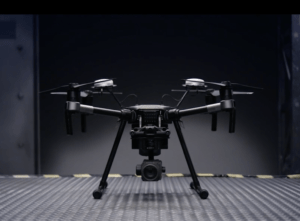
The report from the Pentagon examined the DJI Government Edition Mavic Pro and the DJI Government Edition Matrice 600 Pro. The author of the report examined numerous points of concern noted in a previous audit, finding fixes for those deemed critical. Remaining issues, the report concludes, “have been deemed not a major issue and are mitigable when needed or based on circumstances.”
The publication is the latest move in the complex relationship between the U.S. Department of Defense and the world’s largest drone manufacturer.
DJI has defended the security of their platform since a 2017 U.S. Army memo called for a ban on the use of DJI products due to security concerns. Following the memo, DJI developed their Government Edition platform in collaboration with the U.S. Department of the Interior (DOI), one of the government’s largest users of commercial-off-the-shelf (COTS) drones. Despite their efforts, DOI was forced to down their entire fleet of drones – used primarily for wildfire and environmental protection applications – in 2020, in response to pressure to move away from China-made technology.
DJI has maintained that their government and commercial platforms are secure, and that no data is transferred from its products to DJI itself or to the Chinese government, as some lawmakers fear: an independent audit by consulting firm Booz Allen Hamilton also found no evidence of security leaks. DJI has consistently asked the U.S. government to define specific security specifications, rather than ban the use of technology based on country of origin, which they say raises prices for consumers and limits innovation.
“This U.S. government report is the strongest confirmation to date of what we, and independent security validations, have been saying for years – DJI drones are safe and secure for government and enterprise operations,” says DJI spokesperson Adam Lisberg.
As the U.S. enters another dangerous wildfire season, the Pentagon report clearing DJI drones for government use could help the Department of Interior to recharge their drone program, utilizing their existing fleet for mapping, monitoring, and protecting public lands.

Miriam McNabb is the Editor-in-Chief of DRONELIFE and CEO of JobForDrones, a professional drone services marketplace, and a fascinated observer of the emerging drone industry and the regulatory environment for drones. Miriam has penned over 3,000 articles focused on the commercial drone space and is an international speaker and recognized figure in the industry. Miriam has a degree from the University of Chicago and over 20 years of experience in high tech sales and marketing for new technologies.
For drone industry consulting or writing, Email Miriam.
TWITTER:@spaldingbarker
Subscribe to DroneLife here.